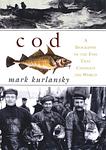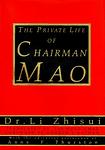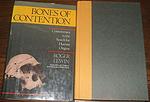The Greatest "History, Life Sciences" Books of All Time
Click to learn how this list is calculated.
This list represents a comprehensive and trusted collection of the greatest books. Developed through a specialized algorithm, it brings together 300 'best of' book lists to form a definitive guide to the world's most acclaimed books. For those interested in how these books are chosen, additional details can be found on the rankings page.
Genres
The category of "History" in books refers to the study and interpretation of past events, societies, and cultures. It encompasses a wide range of topics, including political, social, economic, and cultural developments, as well as the lives of individuals and groups who have shaped the course of history. History books can be written from various perspectives and may focus on specific time periods, regions, or themes. They aim to provide readers with a deeper understanding of the past and its impact on the present.
The "Life Sciences" category in books encompasses a broad range of disciplines that study living organisms and life processes. This includes fields such as biology, botany, zoology, microbiology, genetics, biochemistry, and ecology, among others. Books in this category may delve into the intricate mechanisms of the cell, the complex interactions within ecosystems, the genetic blueprints that dictate the traits of organisms, or the evolutionary processes that have shaped life on Earth. They can range from introductory texts for students to advanced research publications for specialists. The Life Sciences category is essential for anyone seeking to understand the natural world, from the molecular level to the biosphere, and it serves as a vital resource for students, researchers, and professionals in health, agriculture, conservation, and biotechnology.
Countries
Date Range
Reading Statistics
Click the button below to see how many of these books you've read!
Download
If you're interested in downloading this list as a CSV file for use in a spreadsheet application, you can easily do so by clicking the button below. Please note that to ensure a manageable file size and faster download, the CSV will include details for only the first 500 books.
Download-
1. Dialogue Concerning the Two Chief World Systems by Galileo
This scientific work presents a series of discussions between three characters, each representing a different perspective on the cosmological theories of the time. Throughout the dialogue, the characters debate the merits of the Ptolemaic geocentric system, which asserts that the Earth is the center of the universe, and the Copernican heliocentric system, which proposes that the Sun is the center. The author uses these discussions to subtly argue in favor of the Copernican system, challenging the traditional religious and scientific beliefs of his time.
-
2. Guns, Germs, and Steel by Jared Diamond
The book is a comprehensive exploration of the different trajectories of human societies throughout history. It argues that environmental factors, rather than racial or cultural differences, are the primary reason why some societies developed more advanced technology and political systems. The author uses a multidisciplinary approach, drawing from fields such as geography, evolutionary biology, and linguistics, to support his thesis. The book covers a wide range of topics, including the domestication of plants and animals, the invention of writing, and the spread of diseases.
-
3. The Immortal Life of Henrietta Lacks by Rebecca Skloot
The book tells the story of Henrietta Lacks, a poor African American tobacco farmer whose cells, taken without her knowledge in 1951, became one of the most important tools in medicine, vital for developing the polio vaccine, cloning, gene mapping, and more. Henrietta's cells have been bought and sold by the billions, yet she remains virtually unknown, and her family can't afford health insurance. The book explores the collision between ethics, race, and medicine; of scientific discovery and faith healing; and of a daughter consumed with questions about the mother she never knew.
-
4. Sapiens: A Brief History of Humankind by Yuval Noah Harari
This book provides a comprehensive exploration of the history of the human species, tracing back from the earliest forms of Homo Sapiens to the modern day. It delves into evolutionary biology, the development of cultures and societies, and the rise of major ideologies and technologies. The book also discusses the future of the species, posing thought-provoking questions about our roles and responsibilities in a rapidly changing world.
-
5. Cod: A Biography of the Fish that Changed the World by Mark Kurlansky
This book is a fascinating exploration of the historical, cultural, economic, and ecological impact of the codfish. It traces the role of this fish in shaping economies, sparking wars, and influencing culinary trends across centuries and continents. The book also delves into the devastating effects of overfishing and the current struggle to sustain cod populations. The narrative combines history, science, and gastronomy to present a comprehensive biography of this significant fish species.
-
6. The Mind of the South by W. J. Cash
"The Mind of the South" is a comprehensive exploration of the culture, socioeconomic conditions, and mindset of the American South. The author delves into the historical development of the South, analyzing the impact of slavery, the Civil War, and the subsequent reconstruction on the region's collective psyche. The book provides a critical examination of the South's perceived uniqueness, its racial dynamics, and the enduring influence of its past on contemporary Southern identity.
-
7. The Rise And Fall Of The Third Chimpanzee by Jared Diamond
"The Rise and Fall of the Third Chimpanzee" explores the fascinating similarities and differences between humans and our closest living relatives, the chimpanzees. Jared Diamond delves into the evolutionary history of Homo sapiens, examining our complex behaviors, language, art, and technology. He also addresses the darker aspects of human nature, such as violence and environmental destruction, and raises thought-provoking questions about our future as a species. Through a captivating blend of science, anthropology, and history, Diamond offers a compelling exploration of what it means to be human and the challenges we face in our quest for survival.
-
8. The Private Life of Chairman Mao by Li Zhi-Sui
This book is a memoir written by a personal physician who served Chairman Mao for over two decades. It offers an unprecedented and intimate look into the life and character of the powerful Chinese leader. The book reveals Mao's personal habits, manipulative nature, political maneuvers, and his disregard for human life in the pursuit of his goals. It also uncovers the power struggles within the Chinese Communist Party, providing a unique perspective on China's political history.
-
9. Wonderful Life: The Burgess Shale And The Nature Of History by Stephen Jay Gould
"Wonderful Life: The Burgess Shale And The Nature Of History" explores the fascinating Burgess Shale fossil site in Canada and its profound impact on our understanding of evolution. Stephen Jay Gould delves into the diverse and bizarre creatures that once inhabited this ancient ecosystem, highlighting their significance in challenging traditional views of the evolutionary process. Through vivid storytelling and scientific analysis, Gould presents a thought-provoking argument that the history of life is contingent and unpredictable, emphasizing the importance of contingency in shaping the course of evolution.
-
10. Through the Language Glass: Why the World Looks Different in Other Languages by Guy Deutscher
This book explores the link between language and perception, challenging the conventional belief that languages are only tools for describing reality and do not influence the way we perceive the world. The author delves into how different languages can shape the way their speakers understand and interact with their surroundings, arguing that linguistic differences can significantly impact cognition and perception. The book combines linguistic analysis, cultural history, and cognitive science to provide a fascinating examination of how our mother tongue can affect our cognitive processes, including color perception and spatial orientation.
-
11. Bones Of Contention: Controversies In The Search For Human Origins by Roger Lewin
"Bones of Contention: Controversies in the Search for Human Origins" delves into the complex world of paleoanthropology, exploring the heated debates and conflicting theories surrounding the study of human evolution. Through a meticulous examination of fossil discoveries, scientific methodologies, and the personalities involved, the book sheds light on the ongoing quest to unravel the mysteries of our ancient past. With a balanced and engaging approach, the author navigates through the controversies, providing readers with a captivating exploration of the ever-evolving field of human origins.
-
12. Booker T. Washington: The Wizard of Tuskegee, 1901–1915 by Louis R. Harlan
This book delves into the life and influence of Booker T. Washington during his time as the head of Tuskegee Institute from 1901 to 1915. The narrative explores Washington's political and social strategies, as well as his controversial policies, as he navigated the complexities of post-Reconstruction America. It also examines his relationships with key figures of the era, his efforts to promote African American education and economic self-reliance, and his enduring legacy in the fight for civil rights.
Reading Statistics
Click the button below to see how many of these books you've read!
Download
If you're interested in downloading this list as a CSV file for use in a spreadsheet application, you can easily do so by clicking the button below. Please note that to ensure a manageable file size and faster download, the CSV will include details for only the first 500 books.
Download










